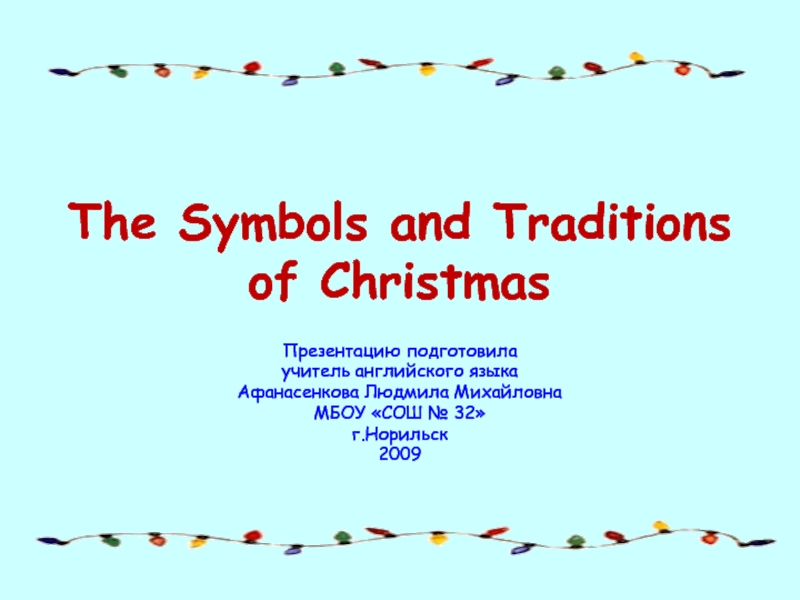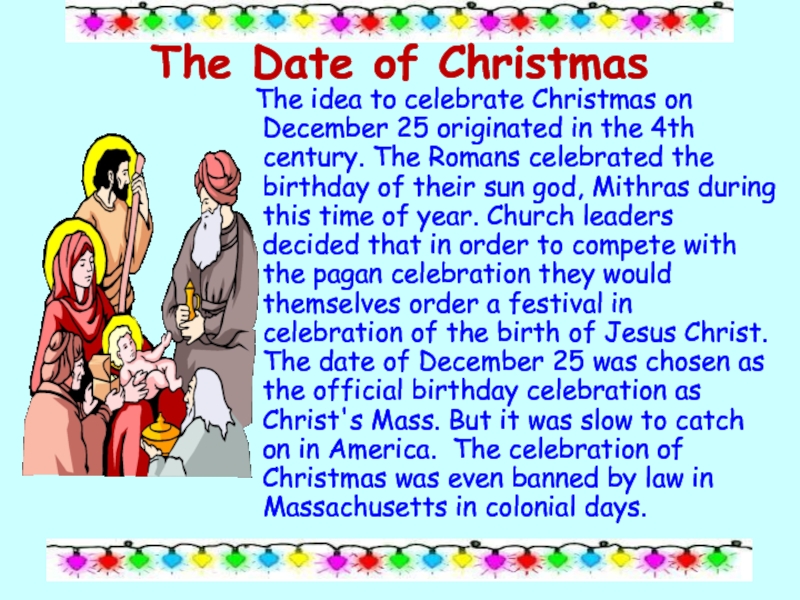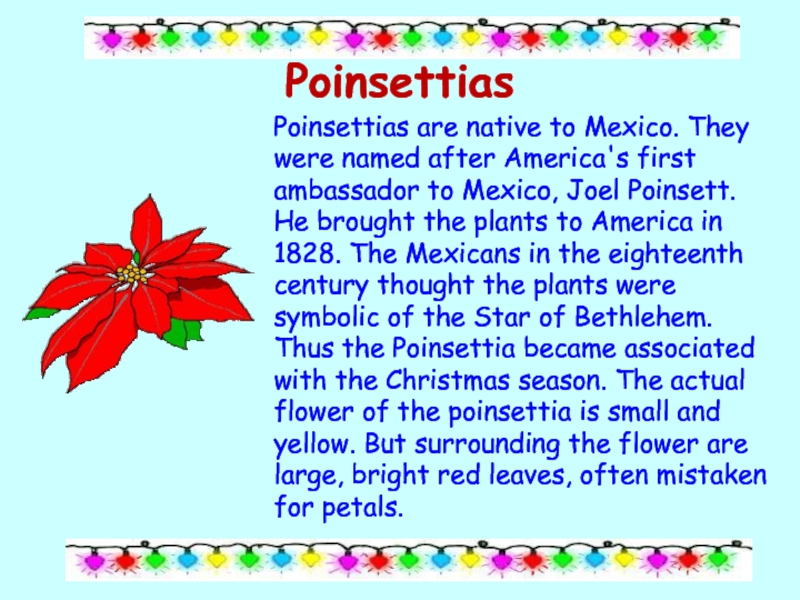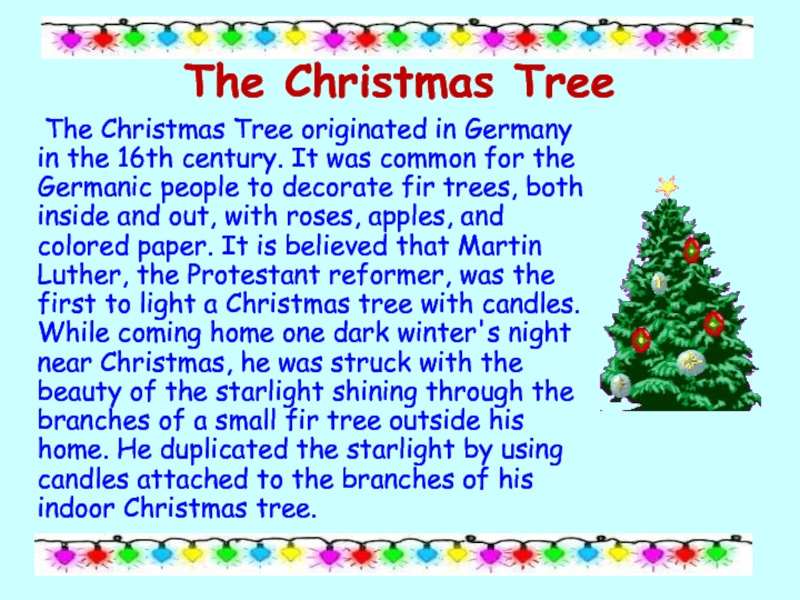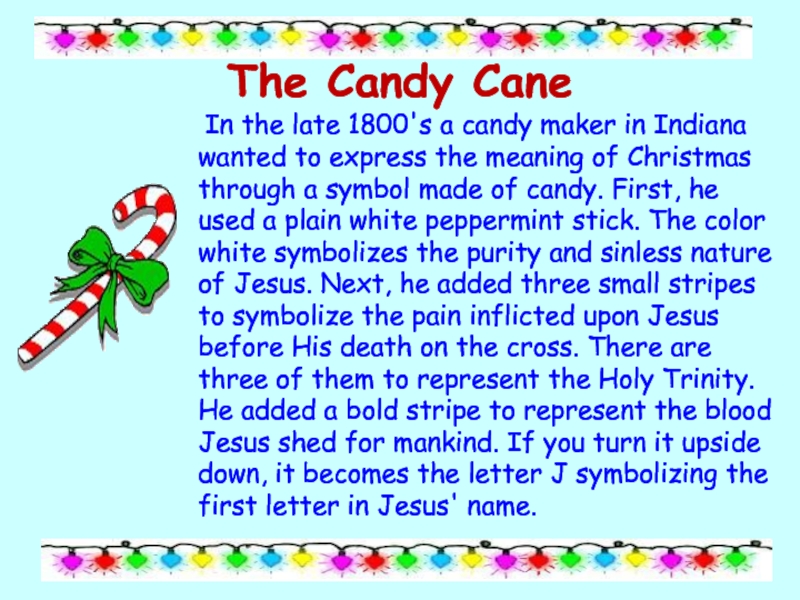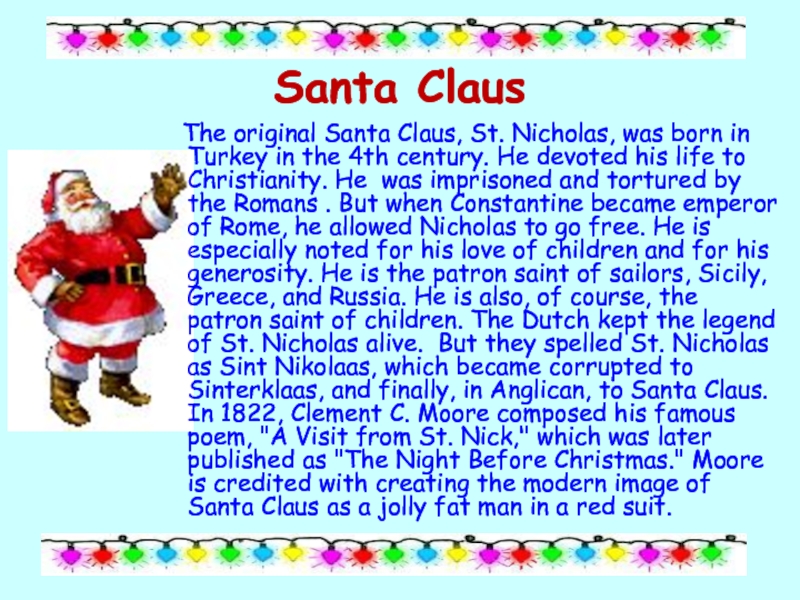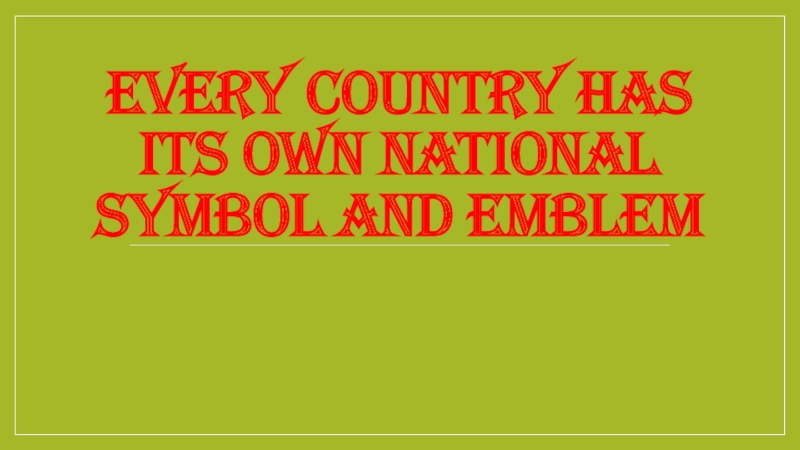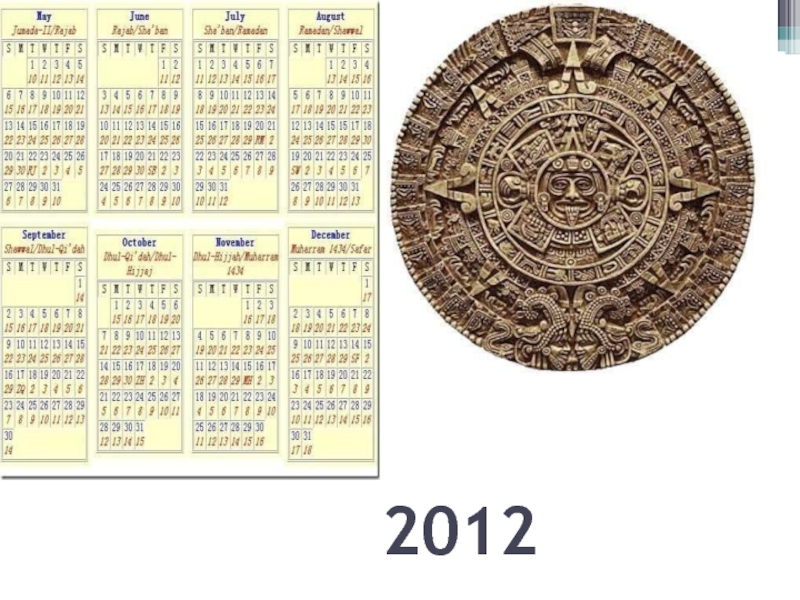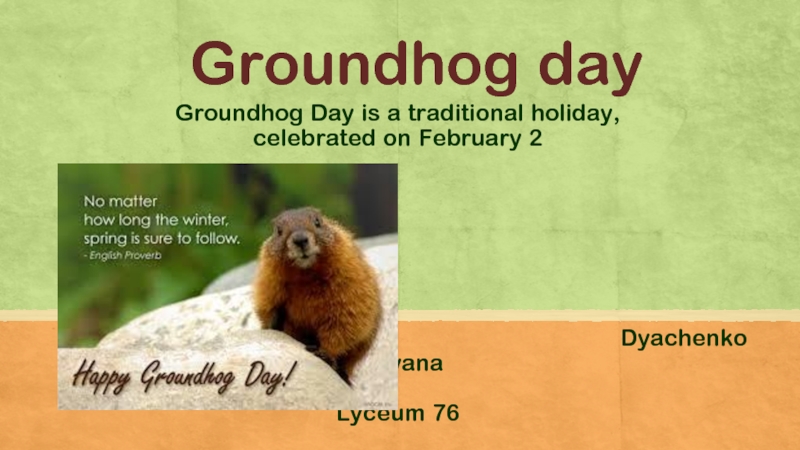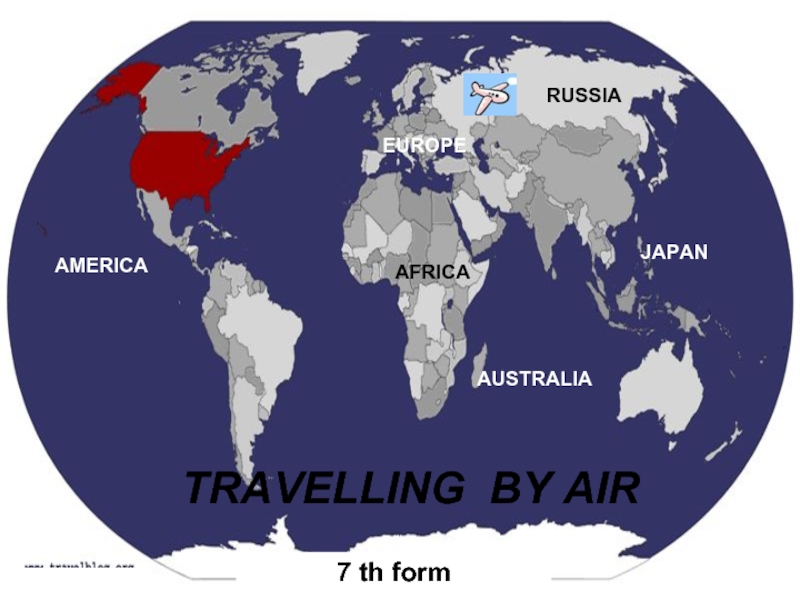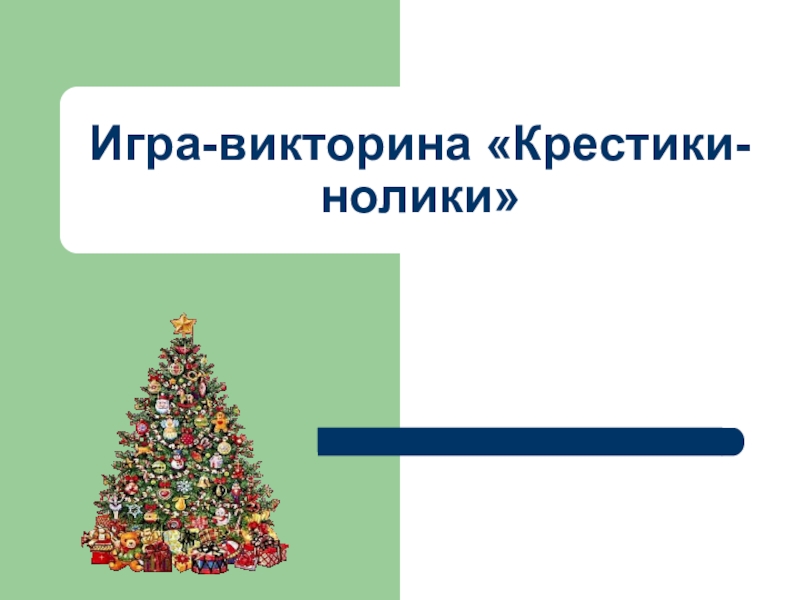Слайд 1The Symbols and Traditions of Christmas
Презентацию подготовила
учитель английского языка
Афанасенкова
Людмила Михайловна
МБОУ «СОШ № 32»
г.Норильск
2009
Слайд 2The Date of Christmas
The idea to celebrate
Christmas on December 25 originated in the 4th century. The
Romans celebrated the birthday of their sun god, Mithras during this time of year. Church leaders decided that in order to compete with the pagan celebration they would themselves order a festival in celebration of the birth of Jesus Christ. The date of December 25 was chosen as the official birthday celebration as Christ's Mass. But it was slow to catch on in America. The celebration of Christmas was even banned by law in Massachusetts in colonial days.
Слайд 3Mistletoe and Holly
In ancient times the Druids used
mistletoe to celebrate the coming of winter. They gathered this
evergreen plant and used it to decorate their homes. They believed the plant had special healing powers. Scandinavians also thought of mistletoe as a plant of peace and harmony. They associated mistletoe with their goddess of love, Frigga. The custom of kissing under the mistletoe probably derived from this belief. The early church banned the use of mistletoe in Christmas celebrations because of its pagan origins. Instead, church fathers suggested the use of holly as an appropriate substitute for Christmas greenery.
Слайд 4Poinsettias
Poinsettias are native to Mexico. They were
named after America's first ambassador to Mexico, Joel Poinsett. He
brought the plants to America in 1828. The Mexicans in the eighteenth century thought the plants were symbolic of the Star of Bethlehem. Thus the Poinsettia became associated with the Christmas season. The actual flower of the poinsettia is small and yellow. But surrounding the flower are large, bright red leaves, often mistaken for petals.
Слайд 5The Christmas Tree
The Christmas Tree originated in
Germany in the 16th century. It was common for the
Germanic people to decorate fir trees, both inside and out, with roses, apples, and colored paper. It is believed that Martin Luther, the Protestant reformer, was the first to light a Christmas tree with candles. While coming home one dark winter's night near Christmas, he was struck with the beauty of the starlight shining through the branches of a small fir tree outside his home. He duplicated the starlight by using candles attached to the branches of his indoor Christmas tree.
In the late 1800's a candy maker in
Indiana wanted to express the meaning of Christmas through a symbol made of candy. First, he used a plain white peppermint stick. The color white symbolizes the purity and sinless nature of Jesus. Next, he added three small stripes to symbolize the pain inflicted upon Jesus before His death on the cross. There are three of them to represent the Holy Trinity. He added a bold stripe to represent the blood Jesus shed for mankind. If you turn it upside down, it becomes the letter J symbolizing the first letter in Jesus' name.
Слайд 7Santa Claus
The original Santa Claus, St. Nicholas,
was born in Turkey in the 4th century. He devoted
his life to Christianity. He was imprisoned and tortured by the Romans . But when Constantine became emperor of Rome, he allowed Nicholas to go free. He is especially noted for his love of children and for his generosity. He is the patron saint of sailors, Sicily, Greece, and Russia. He is also, of course, the patron saint of children. The Dutch kept the legend of St. Nicholas alive. But they spelled St. Nicholas as Sint Nikolaas, which became corrupted to Sinterklaas, and finally, in Anglican, to Santa Claus. In 1822, Clement C. Moore composed his famous poem, "A Visit from St. Nick," which was later published as "The Night Before Christmas." Moore is credited with creating the modern image of Santa Claus as a jolly fat man in a red suit.
Слайд 8Использованные материалы:
http://wilstar.com/xmas/xmassymb.htm
